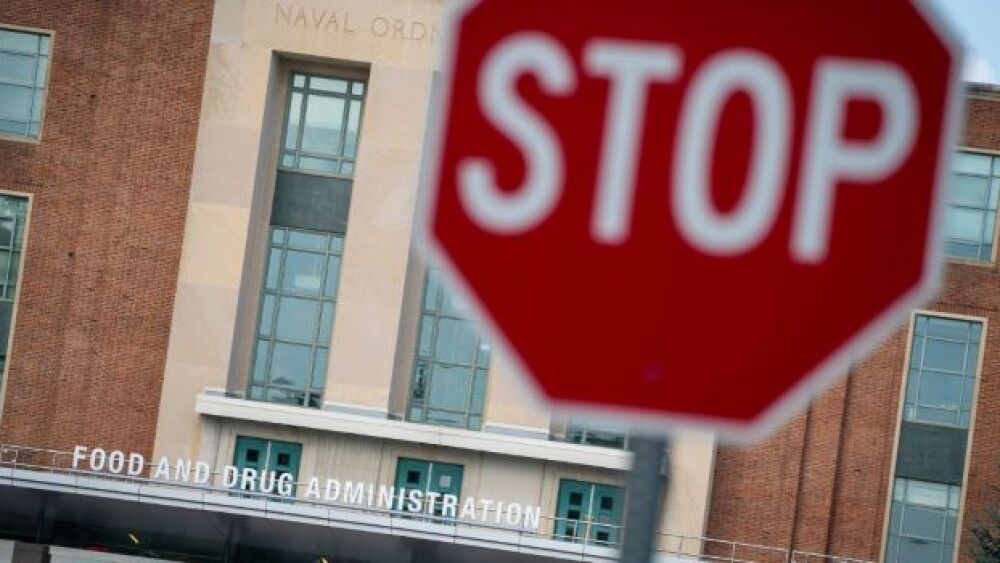The U.S. FDA placed a partial hold on CytoDyn’s HIV program and a full clinical hold on its COVID-19 program in the U.S.
Sarah Silbiger/Getty Images
CytoDyn has continued to express optimism - sometimes too much optimism - about its leronlimab for a range of indications, including HIV and COVID-19.
On Thursday, the U.S. Food and Drug Administration placed a partial hold on CytoDyn’s HIV program and a full clinical hold on its COVID-19 program in the U.S. The company also decided to pause its COVID-19 trials in Brazil until after analysis by an independent Data Monitoring Committee.
CytoDyn did not release the reasons behind the clinical holds.
In May 2021, the FDA issued an unusual public scolding of the company, accusing it of misrepresenting clinical trial data of leronlimab for COVID-19. The statement focused on data from two clinical trials, CD10, in 86 mild-to-moderate COVID-19 patients, and CD12, in 394 patients with severe symptoms.
Although its Phase III trial in March of that year failed to meet the primary endpoint of reducing symptoms and missed all secondary endpoints, including if the drug decreased mortality for COVID-19, CytoDyn put a positive spin on it, focusing on a subgroup of 62 patients on mechanical ventilation, stating that the drug resulted in a 24% decrease in all-cause mortality and a six-day reduction in hospitalization.
In part, the FDA stated at that time, “It has become clear that the data currently available do not support the clinical benefit of leronlimab for the treatment of COVID-19. None of these analyses met statistical significance when using established and reliable analytical methods that correct for multiple comparisons.”
In August 2021, the company was battling against an activist investor group led by Paul Rosenbaum and Bruce Patterson. CytoDyn filed a lawsuit against the group, alleging they were misleading shareholders and “waging an illegal proxy contest to take over control of the Company’s Board of Directors.”
In July, Rosenbaum and Patterson filed with the U.S. Securities and Exchange Commission to nominate five directors to the company’s board. They alleged that CytoDyn’s current leadership had “mishandled the stewardship” of leronlimab. CytoDyn argued the director nomination notice was invalid because it didn’t comply with the company’s bylaws.
In January, Nader Z. Pourhassan, president and chief executive officer, was terminated by the board and replaced by the company’s then-chief financial officer Antonio Migliarese. At the same time, Dr. Scott A. Kelly, M.D., the company’s chairman of the board and chief medical officer, stepped down as chair but stayed on the board and in his position as chief medical officer. The new board chair was an independent director, Tanya Durkee Urbach.
The partial clinical hold on the HIV program affects patients enrolled in extension studies. CytoDyn indicated these patients will be transitioned to other therapeutics, and no clinical trials can be launched or resumed until the partial hold is lifted.
The full clinical hold on the COVID-19 program prevents any new studies from being initiated. It isn’t currently running any COVID-19 trials in the U.S. and is now “evaluating the most optimal programs on which to focus its resources and attention.”
“CytoDyn is committed to FDA compliance,” stated Kelly. “We are evaluating our clinical programs and are working to resolve the issues underlying the clinical holds as soon as possible in close communication with the FDA. We will provide an update when we have additional information.”
Leronlimab is a humanized IgG4 monoclonal antibody that binds to the CCR5 receptor on certain immune cells. CCR5 is associated with a number of diseases, including infectious diseases such as HIV, cancer, and autoimmune disorders.





